Let’s talk about the shelf life and spoilage of ricotta cheese.
Say you’ve just opened a ricotta container, and you’re wondering how long ricotta lasts after opening.
Or maybe yours has been in the fridge for a few days already, and you want to know how to tell if it’s okay to eat or not.
Sounds like you?
If so, this article is for you. Read on.
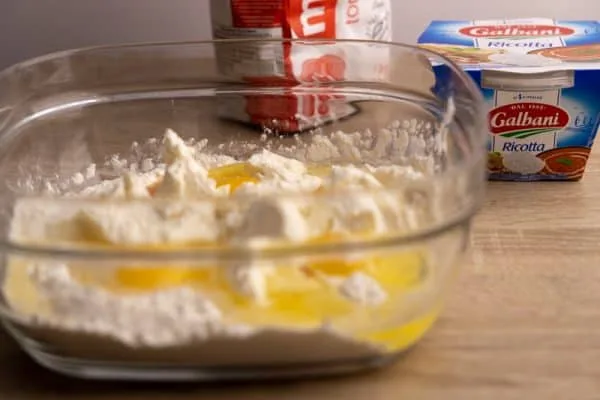
How Long Does Ricotta Cheese Last?
The shelf life of ricotta cheese is around two weeks or three to five days past the date on the label. After you open the container, finish the leftovers within five to seven days. If you need more time, freeze the cheese.
That’s the essence, let’s get into the details.
Ricotta isn’t one of those high-fat dairy products that last a long time (like butter, or hard cheese). Its shelf life is usually around two weeks.
And there’s always a date on the label that’s quite helpful in determining how long the ricotta will keep.
If you (and the supermarket staff) do everything right when it comes to storage, ricotta should stay perfectly fine for up to three to five days past the printed date. That’s about the max I would expect.
Like with all dairy products, if it was mishandled in storage, ricotta can go bad even before its date.
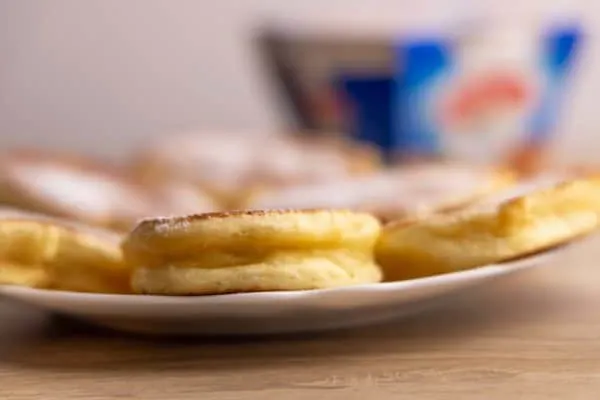
After Opening
Once opened, ricotta should keep for 5 to 7 days. And if your is already past the printed date, you shouldn’t expect it to retain quality for more than two to three days.
As usual, quality loss is a gradual process. So it’s not like your nice and fresh ricotta will completely separate and become sour overnight. But as days go by, you’ll notice that its flavor becomes a bit sourer, and the smell isn’t as fresh anymore.
To get the most out of your ricotta, ensure it’s sealed tightly in storage and follow other storage practices that I outline in the storage section.
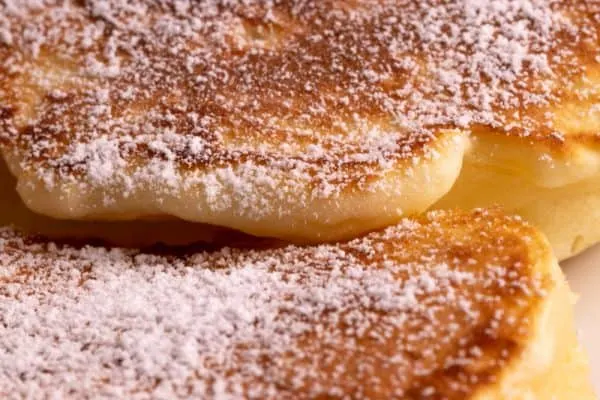
How to Tell if Ricotta Cheese Is Bad?
Your ricotta is bad if it’s moldy, turns yellow or even orange, or has any black or brown spots on the surface. It’s also spoiled if the cheese smells off or “funny,” or if it turns sour.
Mold, discolored spots, and change of color are easy to notice. And if either is present, it’s clear your ricotta is no good. An off odor is another one of those obvious spoilage signs.
What’s less obvious is the cheese turning sour. It’s a gradual process where your ricotta starts to give off a more sour smell, and you begin to notice acidic notes in the flavor.
Unfortunately, there’s no clear distinction between how much sourness is okay and when you should toss the dairy product. It’s up to you to decide.
Fortunately, a simple taste test should be enough to make an informed decision. If you notice that your ricotta’s smell or flavor has changed and it’s now similar to kefir’s or sour cream’s, you probably should toss it.
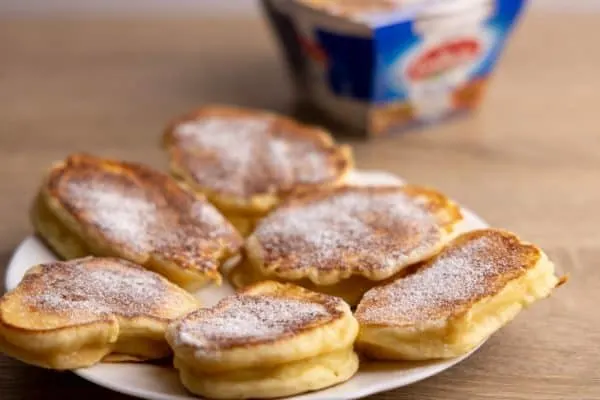
Last but not least, there’s often a bit of separated liquid on the surface of ricotta, especially if it’s already pushing its “use-by” date. That’s perfectly natural and doesn’t make your ricotta bad. You can drain it or stir it in to fix the issue.
It happens all the time to many other dairy products, such as cottage cheese, sour cream, and the like.
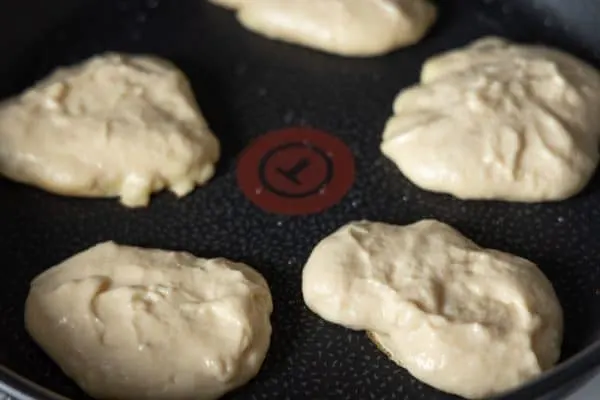
How To Store Ricotta Cheese
I think it goes without saying that you should refrigerate ricotta. And to help it last as long as possible, avoid leaving it out at room temperature. That means:
- chucking ricotta into the fridge as soon as you return home
- if you’re using only a portion, scoop it (using a clean spoon!) and put the rest immediately into the refrigerator
When it comes to open ricotta, make sure it stays sealed. This way, it doesn’t pick up any smells, dry out, or get contaminated by any microorganisms that might be on other foods.
To take care of that, you can either use the original container (if it’s resealable like mine) or use a food container. Either gets the job done.
Last but not least, let’s talk about freezing ricotta.
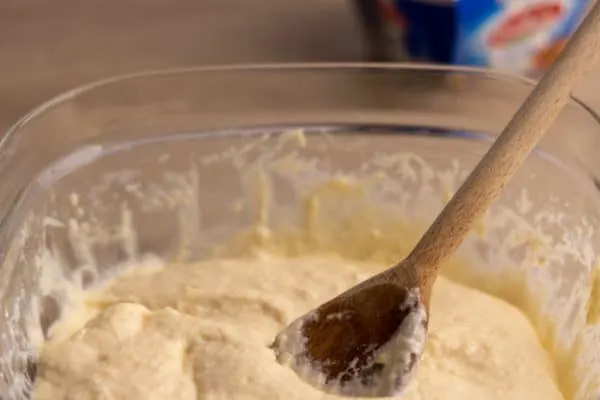
Generally speaking, most producers don’t recommend freezing ricotta cheese because it changes its texture. The once-smooth cheese becomes crumbly, and that’s no good for most uses. The only exception is cooked dishes, where those changes don’t matter that much.
If you’re going to use the ricotta in a cooked recipe (e.g., pancakes), feel free to freeze it in an airtight container. The change in the quality of the final dish should be none at best and subtle at worst.
If you’ve frozen your ricotta, you can easily leave it in the freezer for like 3 to 4 months and use it whenever an opportunity presents itself.